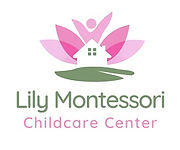Embarking on a career as a childhood educator in Ottawa presents a unique and fulfilling journey. From volunteering to becoming a center supervisor, each step in this career path offers an opportunity to shape young minds and contribute significantly to early childhood development. In this blog, we will guide you through the stages of evolving into a professional childhood educator, emphasizing the pivotal roles, responsibilities, and the gratification that comes with each phase.

Starting as a Volunteer: Planting the Seeds
Why Volunteer? Volunteering is the initial stride towards understanding the realm of childhood education. It's a chance to immerse yourself in the environment, observe experienced educators at work, and interact with children of various ages.
What to Expect? As a volunteer, you will assist in daily activities, help set up educational materials, and learn about the routines and structures of a classroom setting. This phase is crucial for gaining practical experience, networking with professionals, and deciding if a career in childhood education aligns with your passion and skills.
Advancing to an Early Childhood Educator: Nurturing Growth
Educational Requirements To move from a volunteer position to a certified childhood educator, you must fulfill specific educational criteria. In Ottawa, this typically involves obtaining a diploma or degree in Early Childhood Education (ECE) from a recognized institution. The program covers child development, curriculum planning, and inclusive teaching strategies, among other key areas.
Role and Responsibilities As an ECE, you will design and implement educational programs that foster the intellectual, physical, social, and emotional development of children. Recording observations, communicating with parents, and ensuring a safe and welcoming environment are part of the daily responsibilities.
Specializing and Continuing Education: Branching Out
Why Specialize? The field of childhood education is diverse. You may choose to specialize in areas such as special needs education, infant and toddler care, or leadership and administration. Specialization often involves additional certifications or ongoing professional development, but it significantly enhances your expertise and career prospects.
Benefits of Continuing Education Staying abreast with the latest educational trends, teaching methodologies, and child behavior research is vital. Engaging in workshops, seminars, and courses not only refines your skills but also positions you as a committed and knowledgeable educator.
Transitioning to a Center Supervisor: Reaching New Heights
The Pinnacle of Your Career Becoming a center supervisor or a director is a testament to your experience, leadership skills, and dedication to the field of childhood education. In this role, you oversee the entire operation of a childcare center or preschool.
Key Responsibilities A center supervisor ensures high-quality educational standards, manages staff, oversees financial operations, and communicates with parents and the community. It's a role that demands excellent organizational, communication, and leadership skills.
Continuous Impact In this position, your influence extends beyond the classroom. You have the power to shape policies, advocate for children's needs, and lead a team of educators in delivering exceptional care and education.
Conclusion: A Rewarding Journey Awaits
Your career as a childhood educator in Ottawa, from a volunteer to a center supervisor, is a journey of growth, learning, and profound impact. Each stage offers unique challenges and rewards, contributing to your professional and personal development. Remember, the path isn't just about reaching the destination but also about the lives you touch and the difference you make in the crucial early years of children's development. Embrace the journey, for a fulfilling career awaits.
_edited.jpg)
Comments